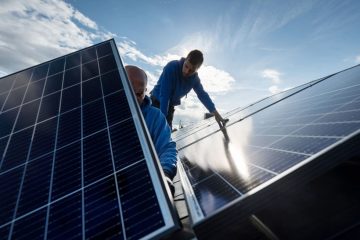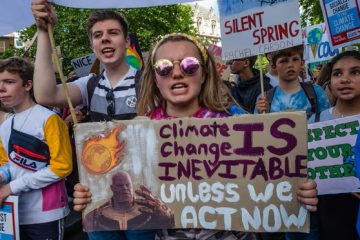Climate Change
We need to stop saying “Climate Change” and start saying “Climate Emergency”
Climate Scientists Emphasize Urgency of Climate Crisis and Call for Immediate Action Escalating rhetoric comes as new study shows there’s just six years left to keep global warming to 1.5 degrees Celsius at current CO2 emissions rate. The Washington Post October 30, 2023 By Shannon Osaka Climate Scientists Speaking Out: Climate Read more…





